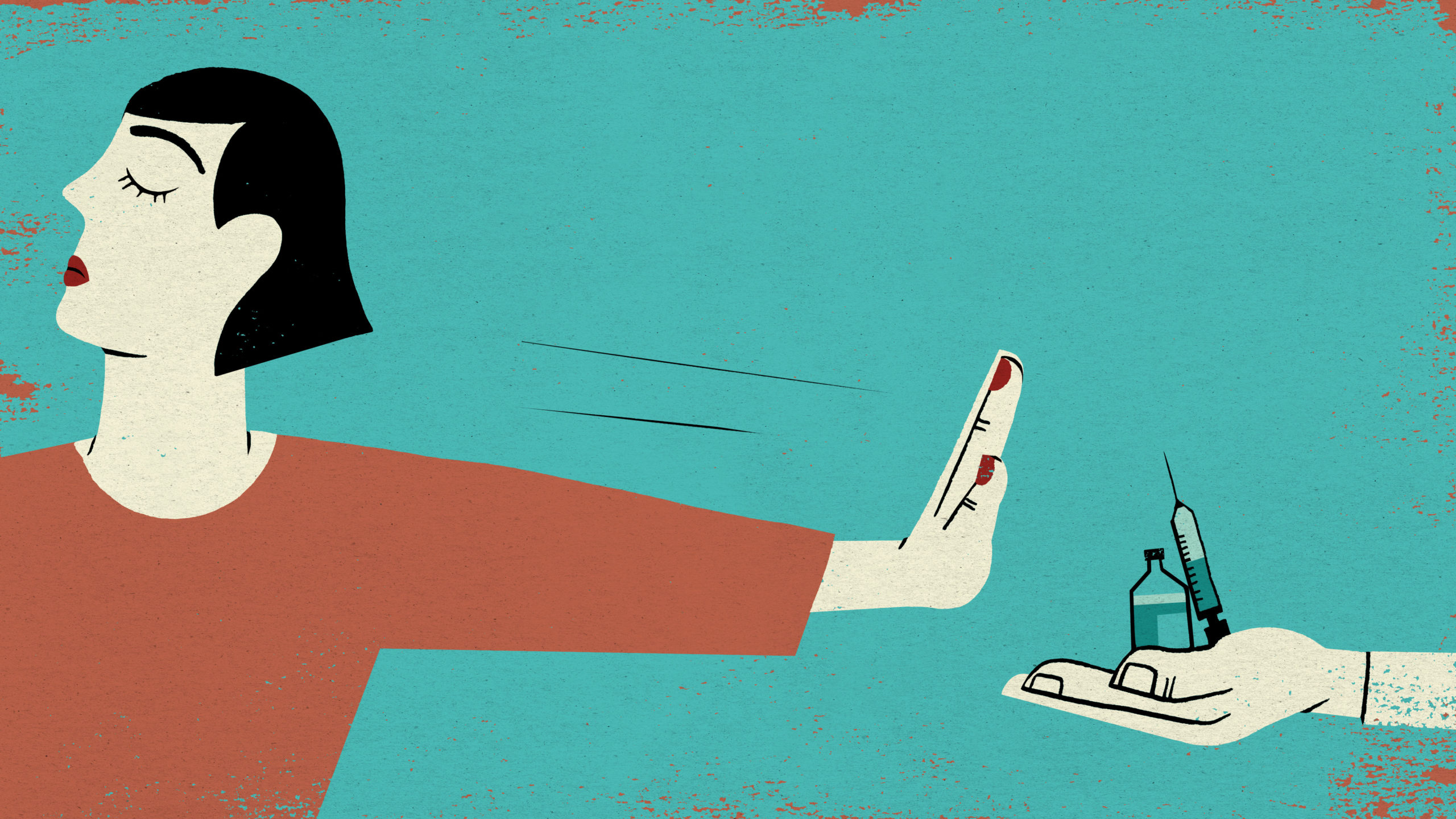RIO DE JANEIRO, BRAZIL – Almost one year after the coronavirus vaccination campaign, Brazil is about to reach 50% of the total population with the two doses of the vaccine.
That may make some optimistic, but countries that started vaccinating earlier face a new wave of cases despite massive vaccination campaigns and spending hundreds of billions.
A new scientific study shows that vaccinated and unvaccinated people alike contract the virus. There is a lack of correlation between the percentage of the fully vaccinated population and new Covid-19 cases (see the study here).

Can the same happen in Brazil?
Brazil has the great advantage that it was confronted with massive new infections on a daily basis in the first half of this year, which caused fear and terror at the time, but ultimately had a positive effect because broad sections of the population acquired a natural immunity as a result.
A total of 29 worldwide studies show that natural immunity tends to be superior to vaccination and lasts longer, so there is hope that Brazil will get off lightly.
Nevertheless, this doubt motivated research developed by Data Science Consultancy, Ilumeo, called Delfos Vaccines, done in partnership with the Brazilian Society of Virology (SBV), which points out which preferences and brand attributes have the most impact at the time of immunization.
Developed by Ilumeo, “Delfos” is a brand tracking methodology to measure the health and strength of brands. The attributes assessed by the survey are derived from personality and brand typology scales for the vaccine research. The country of origin effect of each immunizer was also evaluated.
“We do this by building a structural equation model, a set of various computer algorithms, statistical methods, and mathematical models that work together to enable us to understand the structure of interrelationships between different unobservable factors,” said Otávio Freire, partner and head of Illumeo.
In all, there were 3,059 respondents, 51% had taken at least one dose of the vaccine. 48% are from class C, 29% from classes D and E, and 21% from class B. 40% are from the Southeast, 29% from the Northeast, and 14% from the South.
Understanding why individuals still do not get vaccinated is vital to confronting the pandemic since a high vaccination rate is necessary for the virus to have low circulation. Behind the antivaccine or sommeliers, there is a range of individual, cultural, political, and economic factors.
CORONAVAC AND ASTRAZENECA MOST REJECTED
Despite being the first brands that come to mind of the participants (36% and 30%, respectively), CoronaVac and AstraZeneca are the most rejected immunizers by the same group.
The Chinese Sinovac vaccine, manufactured by Instituto Butantan in Brazil, appears at the top of the rejection list, with 15% less preference and 7% more rejected, followed by AstraZeneca’s with 19% less preference and 4% more rejected.

CoronaVac has little confidence because it is seen as a less effective immunizer compared to the others.
The fear surrounding AstraZeneca, on the other hand, is because of rare side effects. The formation of blood clots in some vaccines even led to the discontinuation of the immunization in Europe in the middle of this year. Still, it was resumed after scientists confirmed the rarity of the side effect.
Read also: Sweden suspends use of Moderna vaccine for under-30s, citing concerns about heart inflammation
The occurrence was 1 case per 250,000 or a rate of 0.0004%. In comparison, the risk of developing venous thromboembolism for women who use oral contraceptives is 4 to 6 times higher than for those who do not use the drug.
Pfizer and Janssen’s immunizers dominate the preference of Brazilians, with 17% approval and only 1% rejection each. They are well accepted in Brazil because they are used in countries like the United States and, in the case of Janssen, because they are single-dose.
Who doesn’t want to be vaccinated?
The survey showed that eight out of ten respondents would not reject any vaccine, despite possibly preferring one or another. On the other hand, 42% of people between 25 and 34 years old are the ones who most reject the Covid-19 vaccine.
In the United States, the country has again recorded an increase in cases and death from June to now and currently counts more than 41 million infected residents and 660,000 lives lost.
“Over there, the campaign is stagnant, and the progress of vaccination has hit the barrier erected by Americans who resist immunization. The research idea is precisely, using data, to check the chances of the same happening here in Brazil,” comments Freire.
4% will not get immunized regardless of the laboratory. Mistrust and fear are the main arguments and, according to the survey.
Some examples of the most common arguments that support the refusal of some vaccines range from the lack of credibility of studies and effectiveness to the lack of knowledge about the long-term side effects.
Among those who don’t intend to get vaccinated, we see more men (53%) from the country’s Southeast (38%), with lower monthly family incomes and less schooling. When considering only those between 45 and 54 years old, the rate drops to 7%.
Information comes from WhatsApp.
Social networks give even more strength to the vaccine sommelier movement since they facilitate sharing alternative news narratives, which are getting suppressed by the mainstream media. According to the survey, WhatsApp and Youtube are people’s primary sources of information about the vaccine during the pandemic.
70% and 66% of respondents, respectively, get informed through these means, followed by Instagram with 56%.
In last place are printed newspapers and magazines with only 7%, as these media are seen by some as willing helpers of the pharmaceutical lobby and give unbalanced reporting about the topic, which means they have massively lost credibility. Especially the critically thinking generation of 25 to 35-year-olds has turned away from these mainstream media.
“This study is intended to alert the association between increased misinformation and slower vaccination coverage. Although it is a tiny percentage of people refuse to be vaccinated, this reality exists. With the correct information, we guarantee the maintenance of everyone’s health. The best vaccine against covid is the one that goes in the arm,” points out Freire.

